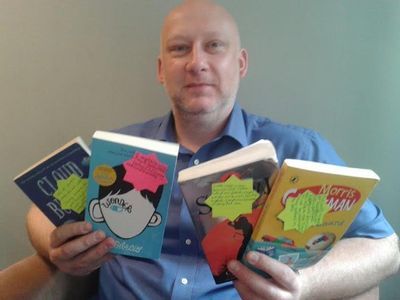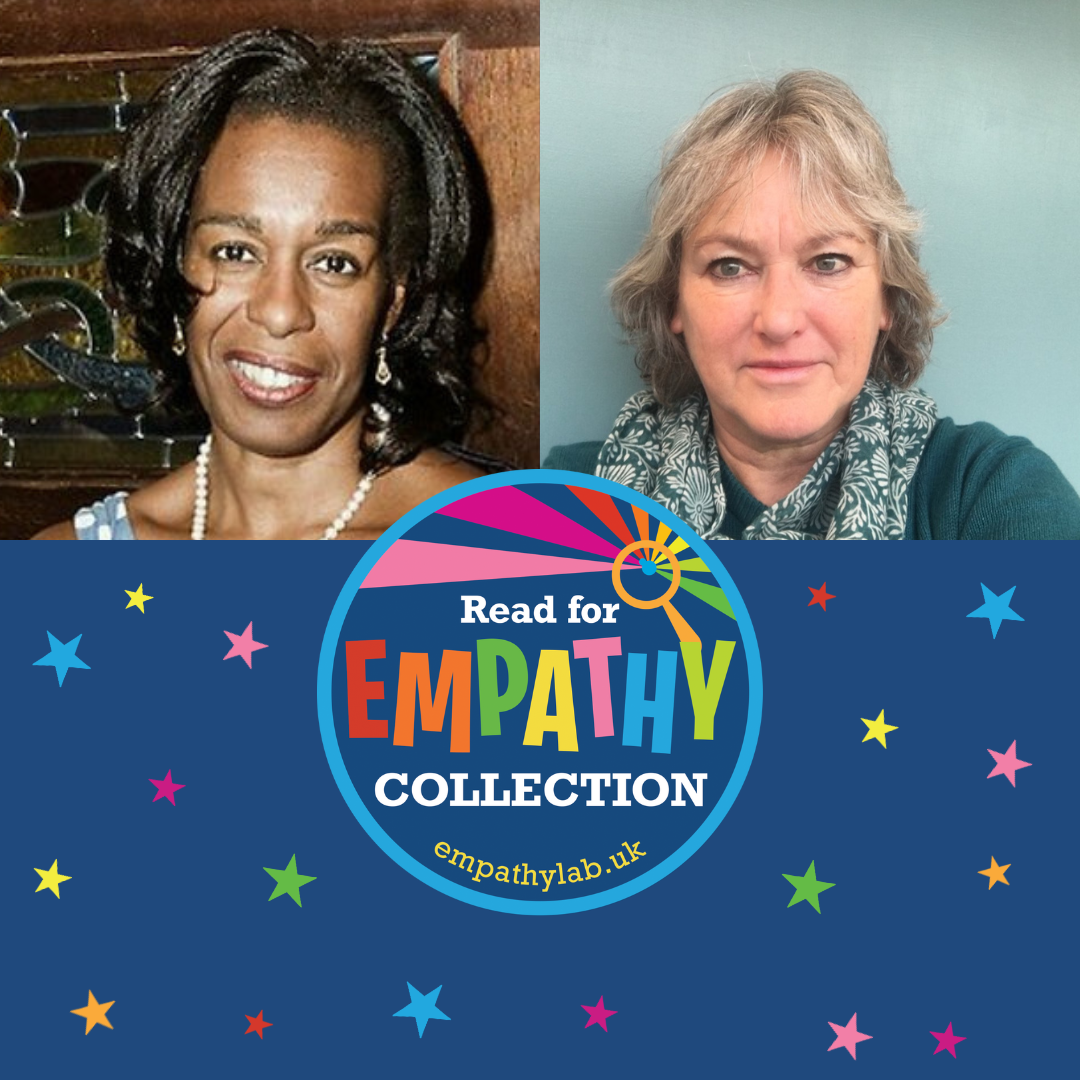In schools, empathy is a powerful form of activism
- By EmpathyLab
- •
- 19 Oct, 2022
- •
Jon Biddle, a primary school teacher, shares his experiences of the transformative power of empathy, and his school's plans for Empathy Action Month in November

Every day, our pupils at Moorlands Primary display empathy to their peers. Only last week, we were reading High Rise Mystery by Sharna Jackson together as a class and we’d reached the point in the book where we were making our predictions about the identity of the murderer. One of our pupils, who has severe special needs and really poor attendance due to chronic ill health, wanted to share his suggestion. After racking his brain, he announced that the murderer was Varjak Paw, who, as I’m sure you all know, is a talking cat with martial arts skills from a completely different book. Rather than laugh or snigger, the children all understood the situation and several of them praised him and told him what a fantastic suggestion it was. Instead of feeling ridiculed, he felt proud that he’d been able to contribute something to the discussion.
I could give more examples, that of the child walking around the playground to try and find a few dropped coins because he wanted to help his mum buy food for his family, that of the pupil quietly giving her breaktime snack to one of her friends because she knew she hadn’t had any breakfast again, there are so many stories I could share about how our pupils display empathy towards others.
Schoolchildren are currently facing a whole range of crises at school and at home. The most pressing and most visible of these is the cost of living crisis, but they’re also dealing with the aftermath of Covid, the pressure of social media, the impact of climate change and the increasingly stressful education system. This is where teaching them about empathy can have a massive impact and why the work of Empathy Lab is so essential.
As teachers, we know that if we teach them about empathy, through stories, through books, through reading, it will develop their empathy skills, and it will encourage them to put those skills into action
By learning about empathy, they understand that they’re not alone, they understand that other people are going through the same situation, feeling the same emotions, dealing with the same problems. They know they can help each other, support their families and actually have an impact. That’s why, although things do appear bleak at the moment, I’m filled with hope that the next generation will make a difference, will make things better. They increasingly understand that social action works.
Every time I talk about Empathy Lab, I try and emphasise the difference their work has made in my school, Moorlands. The Empathy Resolutions our pupils and staff wrote on Empathy Day in June are being reviewed during Empathy Action Month. I already know that the child whose resolution was to spend less time on her phone and more time talking to her mum has done it, because her mum told me, ironically via a message she sent on her phone. I know that the child who wanted to share his love of reading has done it because he still goes down to the nursery every week to read them stories. I can’t wait to hear how the other pupils have got on during our Empathy assembly, alongside watching some of the videos from the amazing authors that Empathy Lab have got lined up.
Children learn a lot during their time at school but learning about empathy and how to put it into action will transform their lives as well as the lives of their peers, their families, in fact everyone they ever meet. Just think about the impact that a whole generation of empathy-aware children could have.
Jon is a senior teacher at & English lead at Moorlands Primary School in Norfolk. He has a passion for developing genuine reading cultures, and is on the judging panel for EmpathyLab's annual Read For Empathy Collection. He is the 2018 winner of the Egmont Reading for Pleasure Experienced teacher award and coordinates the national Patron of Reading initiative, which supports authors and poets in developing relationships with schools. Jon is a member of the UKLA National Council, a regular contributor to the Open University Reading For Pleasure website and a reviewer for Books for Keeps and Just Imagine Story Centre.
In his spare time, Jon writes a blog on building reading communities in schools and talks about books at every possible opportunity.

The collection consists of 65 books for 3-16 year olds, each chosen for its unique contribution in building young people’s empathy.
The primary collection for 3-11 year has 40 books; the secondary collection features 25 books for 12-16 year olds.

I am very fortunate to have been on the Read for Empathy booklist judging panel over the past few years.
I’m also a practising classroom teacher so I would like to consider how the books on the list can influence what happens in a school.
Firstly, along with many other schools, reading aloud is an important part of our school day, every day, almost without fail. All the teachers at my school are aware of the EmpathyLab booklist, and often use it as a basis for choosing their next class read. Knowing that the books touch on important aspects of our children’s lives is key; we all understand how important representation is in stories. These are books that make a difference, that lead to passionate discussions in the classroom and can actually influence children’s behaviour .
The booklists become increasingly valuable. We have a couple of hundred empathy texts at our school – they are there on merit. Staff often refer to previous lists if there as a particular aspect of empathy that they want to include or share with the children.
Our Year 6 Reading Champions often seek out picture books from the list to take in to KS1 and Reception when they read stories, so we already have the next generation educating each other about the importance of empathy. I love the fact they often meet beforehand (they tend to work in twos) to discuss what questions they might want to ask the children once the story has been read. After each booklist is released, they also spend several of their Friday recommendation slots in assembly talking about a couple of the books. We have parents in on our Friday assembly so it’s a great way to share the texts with them and help raise their awareness of our work.
We often use the books as our teaching texts for English, partly because they encourage excellent writing but also because they provide a fantastic opportunity for our pupils to develop their empathy skills. The Wild Robot by Peter Brown, Miraculous Journey of Edward Tulane by Kate DiCamillo, Freedom by Catherine Johnson, Eyes that Kiss in the Corners by Joanna Ho and A Street Dog Named Pup by Gill Lewis are all books that have made in into our English curriculum as a result of being on one of the Read for Empathy booklists. Well, that’s not strictly true - Edward Tulane was there before that as it’s one of my favourite ever books, but you hopefully take my point.
Reflecting on our empathy journey over the past few years, I’ve also found that the more books children read that address empathy, where they can relate to the characters and their choices, the more books they want to read. It’s almost a virtuous circle. Many begin to realise that such books can empower them to think about situations.
For example, as soon as we finished A Street Dog Named Pup last year, several of them immediately wanted to read other books by Gill Lewis. Because empathy is a thread that runs through much of her work ( Gorilla Dawn , Moon Bear , The Closest Thing to Flying and so on). Thanks to EmpathyLab's lists, I was able to point them in the direction of several other books, by her and others.
I think we agree that teaching children about empathy and providing them with opportunities to develop it is one of the most important gifts we can give them as adults. The fact that empathy has gone from being something that schools sort of understood a few years ago to being something that has got an increasingly solid evidence base is crucial.
There’s always been anecdotal evidence that reading stories is important for children and that it can change how they think but now that’s backed up with research. The empathy revolution (and it is a revolution) is only going to pick up more momentum over the next few years as the need for it becomes ever more apparent. Working in schools and in the world of children’s books means that we’re in the front line. There’s nowhere else I’d rather be.
